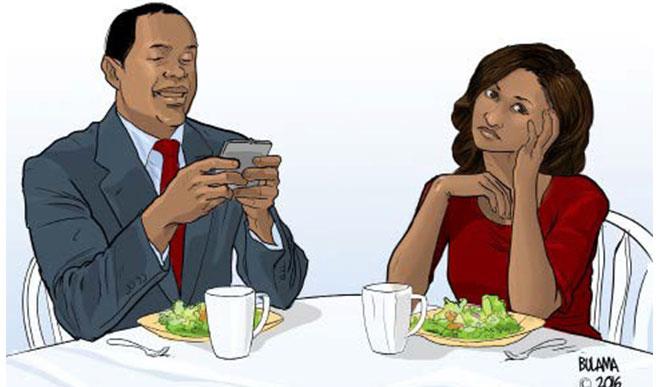What constitutes good or bad phone etiquette?
Rewind to a few decades ago when phones where basically desk phones restricted to offices, phone booths and homes. Then, phone etiquette was considered an office skill discussed and taught to secretaries, receptionists, phone sale agents and others with similar roles on how best to respond to a customer and portray a good image of […]


Rewind to a few decades ago when phones where basically desk phones restricted to offices, phone booths and homes. Then, phone etiquette was considered an office skill discussed and taught to secretaries, receptionists, phone sale agents and others with similar roles on how best to respond to a customer and portray a good image of the organization.
Now, fast forward to the present times when phones have become ubiquitous and have more functions like texting, messaging, video calling and so many more in addition to the traditional making and receiving of calls.
Do the rules still apply? Which begs the question, what is or what should constitute proper phone etiquette in a world dominated by mobile phone users? LifeXtra sought peoples view on this issue.
Faith Useigwu, an undergraduate in her early 20s, started by asking if there was anything like call etiquette,she said “I think the only thing I can relate with call etiquette is hanging up on someone when the person is not done talking.”
She doesn’t believe that not calling back when you miss a call should be considered bad etiquette. To buttress her stance she said “there are times I am cash strapped and I see a missed call, I either flash or send a call me back message, especially if it is someone I know. There are times I see a strange number, I don’t bother calling back because I feel if it is important the person will call me back.”
Her status as a student absolves her of some grievances a caller might have towards her, Faith explained. She said “There are times I get calls from my parents while in the lecture hall and I won’t call them back after lectures, instead I will “flash” them. I am a student, so they should always do the calling.”
Do others feel they are absolved of not calling back? Jide Benjamin, an engineer, feels otherwise. “I am guilty as charged, although I don’t do it intentionally but it is still wrong. There are times I am in a meeting or at site and I see a call, sometimes I cut the call and even go as far as switching off my phone, with the intention of calling back when I have the chance, but most times the opposite is the case.
I would forget that courtesy demands that I call back and would only remember when the person calls again to accuse me.”
Jide said, “It is really a bad habit and I am trying to stop it because it doesn’t tell well of me.”
Patience Mbidiwe, a secretary in her thirties, said, “It is very annoying and rude when someone calls you, and you don’t pick and won’t deem it fit to return the call.”
She added, “In Nigeria many people don’t recognize that there is something called phone etiquette, and that the way you act while on a call can speak volumes. I don’t know if it is because of my job or a personal development but I have learnt to always stick to phone etiquette.”
She enumerated some of such etiquette as talking calmly when on a call because if you are harsh, it can be felt by your respondent, don’t hang up a call if your respondent is not done talking, and most importantly if you are not the one who called. Return a call if you were too busy to pick, it makes the person feel respected. Don’t make, receive or send text messages during a meeting. Don’t chew or get distracted when on a call, use phrases like ‘please’ and ‘thank you’ when necessary.
“These are rules that many Nigerians don’t take into consideration and sometimes look down on. But they are important because the smallest gestures can make or mar you,” admonished Patience.
UcheOkoro, a business man in his 40s, said he can’t afford not to return calls because you wouldn’t know which is from a business client. “Before now I have never thought of phone etiquette and still don’t have it in mind, but my kind of business makes me return calls and try to be very polite on the phone when I have to be. I didn’t return calls before I started my business because I didn’t see a reason to, but I do now.”
Lawal Yusuf, an administrator and teacher in his late 30s,explains what he considers proper or bad phone manners. “A bad call behaviour is when someone calls you at midnight and doesn’t have a good reason for doing so while a good call etiquette is when someone calls you for the first time and properly identifies his or herself like my name is this and that,” explained Lawal.
Lehigh University wrote about phone etiquettes on its website saying “When you call someone and they answer the phone, do not say ‘Who am I speaking with?” without first identifying yourself (Example – ‘This is Bamas Victoria from Daily Trust Newspaper. To whom am I speaking?)” It added that you should always know and state the purpose of the communication.
